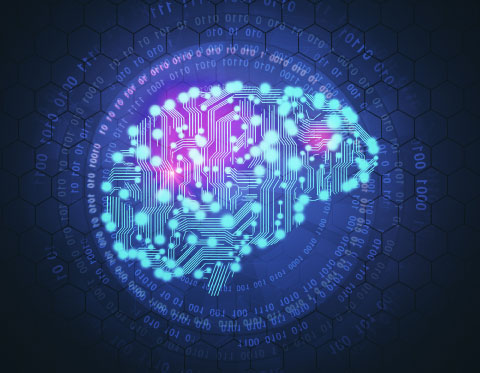We are in the midst of a global technological revolution in which the world's major powers are engaged in a race to develop technological innovations based on artificial intelligence (AI).
But how does it fit the needs of real life today?
AI is being used in a variety of areas, but some more than others represent a trend in how it's applied in 2023.
1. E-Commerce and Retail Trade
You can better engage customers by using AI-based product recommendation and suggestion tools. Data such as customers' browsing history, preferences, and interests are used and processed (along with other data that may not seem directly related, such as weather conditions) to create a personalized shopping experience in both online ecommerce and physical stores. The result is customer loyalty.
Artificial intelligence will also be very useful in solving two problems that discourage users from buying online: (i) it can detect and reduce credit card fraud, and (ii) it can identify and appropriately handle fake reviews.

2. Artificial Intelligence in Healthcare
There are a wide range of applications for artificial intelligence in the health care industry, including:
- Developing sophisticated machines that can detect disease and identify cancer cells;
- Combining artificial intelligence with lab data to detect chronic diseases early;
- Discover new drugs by cross-referencing historical data with medical knowledge;
- Perform routine tasks such as analyzing tests, X-rays, CT scans, and data entry with the help of robotics;
- Analyzing a large amount of data, which can be time-consuming in cardiology and radiology; in the future, the use of human supervision in cardiology and radiology will be limited to the most complicated cases, while AI will take care of the rest;
- Accurately measure heart rate and physical activity or send alerts to the user to increase exercise. This information is then shared with doctors and artificial intelligence systems to learn more about the patient's habits and needs.
3. Agriculture
The use of artificial intelligence for pest and disease detection, intelligent spraying, and product selection is transforming the food and agriculture industry.
AI is also helping to improve the quality and accuracy of harvests; farmers can use AI technology on their farms to detect disease, pests, or poor nutrition.
Computer vision, robotics, and machine learning applications help monitor weed growth, while AI-powered robots make harvesting crops faster and more efficient.
4. Applications of artificial intelligence in the life style
Our lifestyle has been greatly influenced by technology and is gradually being enriched by new applications based on artificial intelligence.
In mobility, for example, Toyota, Audi, Volvo, and Tesla are using machine learning to teach their cars to drive safely in different contexts and to recognize objects to avoid accidents.
As another example, AI filters spam emails out of inboxes and puts them in the spam folder or the trash folder. According to statistics, Gmail is able to filter 99.9 percent of email traffic thanks to AI.
5. Applications of artificial intelligence in the field of robotics
There are also many applications of AI in robotics. A robot using AI is able to detect obstacles in real time and plan its path in advance. In so many areas, AI can determine the best routes, frequency, and means of transportation for products and operators.
Process automation through robotics is also gaining popularity in the healthcare industry - but not only - because it automates and standardizes repetitive tasks, allowing workers to focus on more important tasks.
Automated inventory management systems can identify demand patterns, accurately forecast them, and optimize inventory replenishment plans based on this data (demand planning). An AI-based real-time inventory management system provides more accurate and immediate forecasts.
Over the past two decades, artificial intelligence has revolutionized a wide range of fields, creating innovative technological applications and helping to solve complex problems.
Always attentive to the changes and trends in a constantly evolving industry, Omnys has been able to grasp the importance and potential of AI since its inception, and can now boast a wealth of know-how and case histories. It has thus been able to capitalize on its experience in the field of Artificial Intelligence in a platform, Omnyscient, that uses algorithms based on Deep Learning to train models and make predictions, offering its customers cutting-edge solutions and innovative projects: such as the one developed for a company that operates worldwide in the design, production and installation of equipment for the retail sector, which became a success story and allowed Omnys to become the first Italian Amazon Forecast Partner in the EMEA area and today AWS Advanced Consulting Partner.